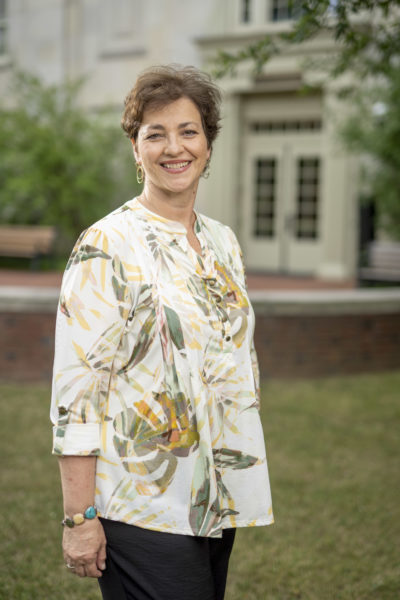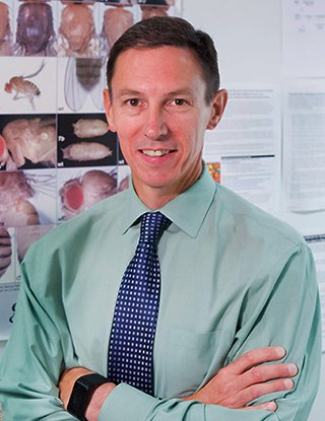The Faculty Development Committee, charged with analyzing and assessing the results of the COACHE Faculty Survey administered in spring 2020, has prepared a preliminary report on the survey’s topline findings and will share the report and engage faculty at two workshops in March. Faculty also are encouraged to review the working group’s preliminary report and to provide input using the anonymous feedback form on the Vanderbilt COACHE website.
The faculty workshops are scheduled for Friday, March 26, from 12:30 to 2 p.m. and Tuesday, March 30, from 1 to 2:30 p.m. The final report, which will incorporate faculty feedback gathered at the workshops and online, will be released in May.

“The Faculty Development Committee recognizes the imperative of soliciting our colleagues’ responses to the preliminary report, and we look forward to hearing whether they find their experiences and perspectives reflected in the survey data,” said Chalene Helmuth, senior lecturer in Spanish and co-chair of the Faculty Development Committee. “We are especially interested in seeing the changes they have observed over the four years since we participated in the first COACHE Survey.”
The survey was conducted from Feb. 14 to April 12, 2020, with the Collaborative on Academic Careers in Higher Education (COACHE) to identify the drivers of faculty success and to implement informed changes. The survey was distributed to all tenured, tenure-track and non-tenure track faculty who are full-time and report to the provost. The survey had a 59 percent response rate, which was 25 percent higher than peers in the COACHE survey cohort. VUMC clinical faculty were not included in this survey. The survey also excluded senior administrators with faculty appointments and faculty in their first year at Vanderbilt.
The high-level findings show that Vanderbilt has key strengths in the areas of interdisciplinary work, collaboration and department quality. Several personal and family policies also ranked high in faculty satisfaction, particularly tuition benefits. Overall, faculty at Vanderbilt expressed higher levels of satisfaction than those at peer institutions across the large majority of questions and categories.
Nonetheless, areas of concern were identified. These include parking benefits, issues of shared governance, and questions of clarity around tenure and promotion.
The report takes a deeper look into these issues and reveals some interesting findings. For example, although satisfaction with the clarity of tenure and promotion expectations has improved among faculty overall since the 2016 COACHE survey, the differences in satisfaction levels with race, ethnicity and gender are striking. Women faculty at Vanderbilt are slightly more satisfied than men with respect to the clarity of tenure standards, but substantially less satisfied with the clarity of promotion-to-full standards and timelines. They are also less satisfied than women faculty at peer institutions, a clear competitive disadvantage for Vanderbilt. In addition, Vanderbilt faculty from underrepresented minorities (URM) are substantially less satisfied with the clarity of tenure standards, both compared to their colleagues at Vanderbilt and to URM faculty at peer institutions. Interestingly, despite interdisciplinary work being a Vanderbilt strength, faculty expressed dissatisfaction with how such work is valued in tenure, promotion and renewal decisions.

“I think these findings highlight something that we know and yet seldom acknowledge: Our colleagues across campus all experience a different Vanderbilt,” said Shane Hutson, professor of physics and co-chair of the Faculty Development Committee. “Hopefully, a careful exploration of the COACHE survey data will help us all recognize and address those differences.”
The COACHE survey was designed to provide information in areas such as the nature of work (e.g. research, teaching and service); resources and support; interdisciplinary work; collaboration and mentoring; tenure and promotion; leadership; work and personal life balance; faculty governance; department collegiality and engagement; and appreciation. It included questions developed by COACHE as well as Vanderbilt-specific questions developed by the university addressing faculty experiences with inclusion, diversity, civility and freedom of expression.
The survey results include comparisons to five peers and comparisons of Vanderbilt demographic groups. The peer institutions are Emory University, Georgetown University, the University of Maryland–College Park, the University of Texas at Austin and the University of Virginia.
The Vanderbilt demographic groups that were compared were based on tenure status, rank, gender and race and ethnicity. COACHE ensures absolute confidentiality of all responses by faculty; the organization houses the raw data, with the Vanderbilt administration and faculty only able to see the aggregate responses.
Members of the Faculty Development Committee will participate in school and department faculty meetings throughout February and early March to extend personal invitations to faculty to participate in the workshops. The committee also will organize discussion groups in early April prior to generating the final report.
Members of the Faculty Development Committee include:
- Chalene Helmuth, co-chair, senior lecturer in Spanish
- Shane Hutson, co-chair, professor of physics
- Bradley Erford, professor of human and organizational development
- Kelly Goldsmith, associate professor of marketing
- Jonathan Irish, associate professor of cell and developmental biology; associate professor of pathology, microbiology and immunology
- Mariann Piano, Nancy and Hilliard Travis Professor of Nursing
- Paige Skiba, professor of law
- Trudy Stringer, associate professor of the practice of ministry
- Lesley Turner, associate professor of economics
- Felix Wang, professor of cello
- Tracey George, ex-officio, vice provost for faculty affairs
- William Robinson, ex-officio, vice provost for academic advancement and executive director of the Provost’s Office for Inclusive Excellence
- Jermaine Soto, ex-officio, director of faculty development
Vanderbilt’s Office for Planning and Institutional Effectiveness (PIE) was also instrumental in supporting the efforts of the Faculty Development Committee.
COACHE is a research and membership organization that has been operating from the Harvard Graduate School of Education since 2003. It is driven by senior academic leaders who have worked with more than 230 colleges and universities to shape career satisfaction for faculty, and, over the past decade, has produced best-in-class institutional reports. Vanderbilt originally participated in the COACHE survey in 2016.